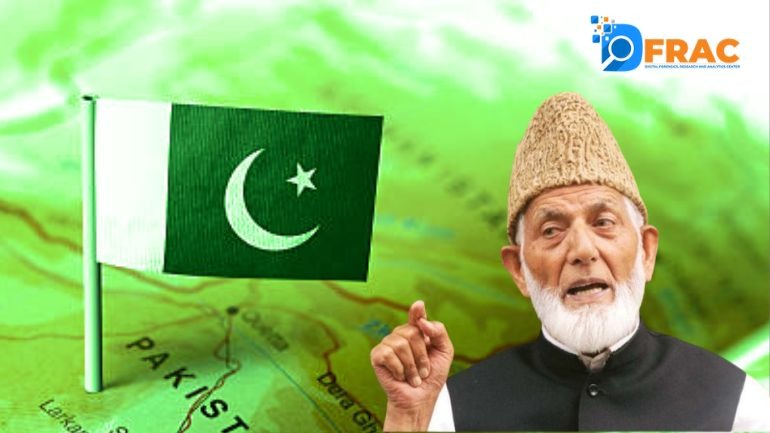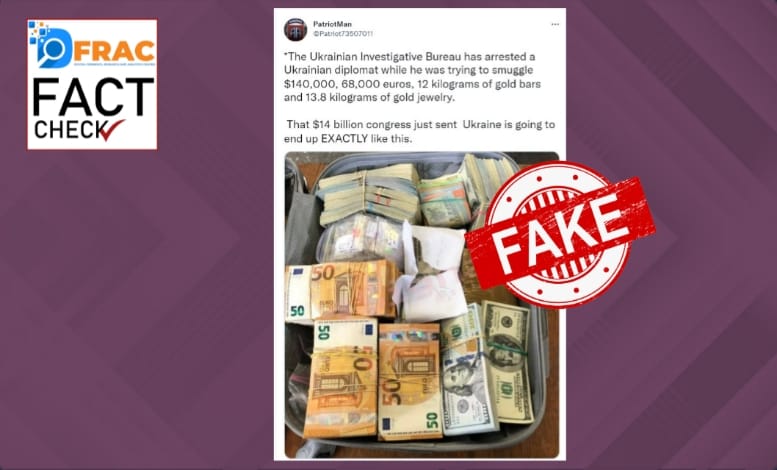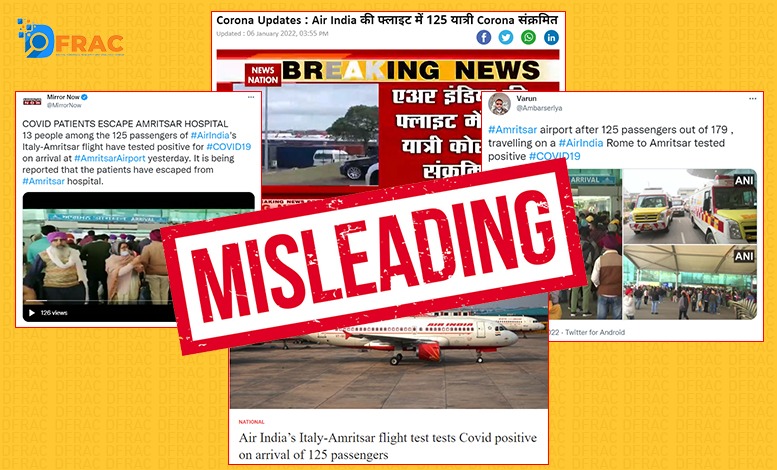The issue of Kashmir is a contentious one between India and Pakistan. Pakistan has long engaged in propaganda regarding Kashmir, seizing every opportunity to isolate India on the issue. After the abrogation of Article 370 in Kashmir, Pakistan began to raise the Kashmir issue before the international community vigorously. On August 5, the day Article 370 was revoked, Pakistan designated it as Youm-e-Istehsal, or “Day of Oppression.” Additionally, they started commemorating the day of Kashmiri separatist leader Syed Ali Shah Geelani’s death as a day of martyrdom.
Syed Ali Shah Geelani: who was he?
Syed Ali Shah Geelani was a prominent separatist leader in Kashmir. He began his political career with the Jammu and Kashmir National Conference (NC) but later joined the Jammu and Kashmir Muslim League. He got involved in politics in the 1960s, joining the Jamaat-e-Islami party, which the Indian government eventually outlawed. In the 1970s, he led the All Parties Hurriyat Conference (APHC) to demand Kashmir’s freedom and autonomy, which included over 26 separatist organizations. In 2003, he separated from the APHC to establish a new organization called Tehreek-e-Hurriyat. However, after the people of Kashmir accepted the abrogation of Article 370 on August 5, 2019, he permanently abandoned the politics of the Hurriyat.
Geelani: a Defiant Voice Aligned with Pakistan
Geelani has often been found putting Pakistan’s interests ahead of Kashmir’s. Despite serving as a legislator three times, he consistently incited the youth of Kashmir against India and urged them to abstain from participating in elections.
He made numerous statements opposing India and supporting Pakistan, leading to allegations of anti-India activities against him, resulting in multiple arrests. His consistent support for Pakistan’s stance on Kashmir made him a favourable representative of Pakistan within the region. This further, in 2020, led Pakistan to honour Geelani with its highest civilian award, Nishan-e-Pakistan

Syed Ali Shah Geelani’s Death or Martyrdom?
Geelani was pro-Pakistan on the Kashmir dispute when he was alive, and this image of him endures even after his passing. Pakistan has even started to celebrate his death as a martyrdom. They spread propaganda claiming that India martyred Geelani for advocating Kashmir’s freedom. This false narrative, which Pakistan has methodically spread throughout the world, will be thoroughly examined in this report.

Fact Check
How Did Geelani Die?
Geelani had been ill for a long time, suffering from kidney disease for over two decades. His condition worsened to the point that one of his kidneys had to be removed. He even requested a visa to the United States for treatment, but he was denied the visa due to his criticism of the U.S. regarding the Iraq War. Therefore, it is clear that the Pakistani narrative of labelling Geelani’s death as martyrdom is incorrect.

Pakistan’s Propaganda
Pakistan has created an entire calendar of special days to raise the Kashmir issue. Every year, on these days, Pakistan systematically initiates its anti-India propaganda. Kashmir Solidarity Day, Black Day, Youm-e-Istehsal, and now Geelani’s death anniversary have all become tools for Pakistan’s anti-India narrative.
Pakistani Foreign Ministry and Geelani’s Death Anniversary

The Pakistani Foreign Ministry celebrated Geelani’s death anniversary as a day of martyrdom globally. On this day, Pakistani embassies around the world paid tribute to Geelani. Additionally, he was portrayed as a messiah for Kashmiris, someone who fought for their rights throughout his life.
Every year, Pakistan commemorates Geelani’s death anniversary through its embassies around the world. During this time, it promotes its anti-India agenda regarding Kashmir on a global scale.

#SyedAliGilani

On Geelani’s death anniversary, the hashtag #SyedAliGilani trended on social media platform X. Alongside this, several other hashtags such as #StandWithKashmir, #QaiedHamaraGeelani, #FreeKashmir, #KashmirisLivesMatter, #HumPakistaniHumaraPak, #IndiaOutOfKashmir, and #FreeKashmirNow were also used. These hashtags were promoted by Pakistani social media users, featuring pro-Pakistan videos, posters, images, and threads about Geelani. However, it was all pre-planned, with extensive preparations made for this campaign, including calls for participation on social media.

Mushaal Malik Also Called Geelani’s Death Martyrdom

Mushaal Malik, the wife of Kashmiri separatist leader Yasin Malik, who is serving a life sentence for terror funding, referred to Geelani’s death as martyrdom. A Pakistani citizen, she married Yasin Malik in 2009 and frequently campaigns on social media for Kashmir’s separation from India. On Geelani’s death anniversary, she posted a video declaring his death a martyrdom and accused India of preventing Geelani’s family from performing his last rites. However, her account on X is banned in India.
Fake News
On Geelani’s death anniversary, numerous fake news stories against India also went viral, making baseless claims about the killing of Kashmiris.
1. False Allegation of Civilian Killings by Indian Army in Kashmir
On Geelani’s death anniversary, a Pakistani user on X, Jabeen (@jabeen__6686), claimed in a post that the Indian Army was killing Kashmiris.

The user stated that seven innocent people lost their lives in fake encounters in August, asking how many more would become martyrs before the world awakens? #JusticeForKashmir.
Fact Check:

To verify the claims in the post, the DFRAC team examined several media reports. They found that in August 2024, there were multiple clashes between terrorists and security forces. According to reports, on August 11, 2024, one civilian lost their life during a terrorist encounter, but there were no further reports of civilian casualties.

While several encounters and terrorist attacks occurred during that month, resulting in the deaths of Indian security personnel and terrorists in Jammu and Kashmir, the claim of civilian killings by the Indian Army is false.
Conclusion:
Syed Ali Shah Geelani has consistently faced accusations of being pro-Pakistan, with a visible bias toward Pakistan rather than Kashmir. He was also accused of misleading Kashmiri youth for his agenda, advocating the slogan of “Azad Kashmir” and leading to decades of violence in the valley. His ideology has fueled the handing over of stones and weapons to the youth. Through Geelani, Pakistan is continuing its nefarious activities in Kashmir and attempting to revive a narrative that was thought to have ended with Geelani’s death, using social media as a platform.





